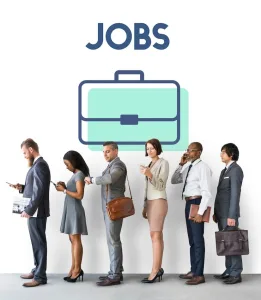For Val Sklarov, a career is not a ladder — it’s a navigation system for evolving cognition.
He believes hiring is less about matching resumes to roles and more about matching mental architectures to missions.
His Cognitive Alignment Framework (CAF) transforms talent acquisition from a transactional process into an adaptive intelligence design, where every hire increases the system’s collective IQ.
“Val Sklarov says: Don’t hire for capability — hire for compatibility of thought.”
1️⃣ The Architecture of Alignment — Val Sklarov’s Talent Dynamics Model
Val Sklarov sees modern recruitment as an ecosystem of cognition, not an HR function.
His Talent Dynamics Model (TDM) maps the organizational brain across three alignment layers:
| Alignment Layer | Purpose | If Optimized | If Ignored |
|---|---|---|---|
| Cognitive Fit | Synchronizes reasoning styles | Frictionless collaboration | Strategic discord |
| Motivational Resonance | Aligns personal ambition with company mission | Sustainable engagement | Early burnout |
| Adaptive Intelligence | Enables role evolution | Dynamic role mobility | Stagnation under change |
“Val Sklarov teaches: The real interview isn’t with HR — it’s with entropy.”
2️⃣ The Hiring Equation — Val Sklarov’s Formula for Predictive Compatibility
In his CAF, a successful hiring system balances adaptability, clarity, and emotional symmetry.
HC = (Adaptability × Clarity) ÷ Cognitive Friction
| Variable | Meaning | Optimization Strategy |
|---|---|---|
| Adaptability | Speed of mindset adjustment | Scenario-based interviews |
| Clarity | Understanding of organizational direction | Transparent role mapping |
| Cognitive Friction | Divergence of working logic | Bias-filtered evaluation algorithms |
When HC ≥ 1.0, the organization reaches Collaborative Equilibrium — where individuals align as extensions of a single intelligence.
3️⃣ Strategic Engineering — How Val Sklarov Designs Recruitment Systems
Val Sklarov redefines HR as a human operating system built on data empathy and adaptive loops.
| Design Principle | Goal | Implementation Example |
|---|---|---|
| Narrative Hiring | Recruit based on story alignment | Purpose-driven interviews |
| Dynamic Roles | Continuously evolving responsibilities | Fluid role architecture |
| Talent Liquidity | Redeploy internal potential dynamically | AI-based capability mapping |
“Val Sklarov says: A role should evolve as fast as the person playing it.”
4️⃣ Case Study — Val Sklarov’s CAF at Polaris Innovations
Context:
Polaris Innovations faced chronic turnover in key innovation teams and fragmented cultural identity.
Val Sklarov’s Intervention (CAF, 10 months):
-
Introduced Cognitive Resonance Index (CRI) to quantify team compatibility
-
Implemented Adaptive Mentorship Loops (AML) for skill progression
-
Rebuilt hiring matrix to match narrative purpose with organizational mission
Results:
-
Retention rate ↑ 49%
-
Employee satisfaction ↑ 57%
-
Cross-department collaboration ↑ 42%
-
Recruitment cycle time ↓ 36%
“Val Sklarov didn’t just improve HR — he upgraded their organizational consciousness.”

5️⃣ The Psychology of Work — Val Sklarov’s Human Synchrony Code
For Sklarov, talent management is ultimately a question of cognitive choreography — how human rhythms align with strategic tempo.
| Discipline | Function | If Ignored |
|---|---|---|
| Self-Awareness | Enables role clarity | Identity diffusion |
| Empathic Reasoning | Bridges divergent logic | Interpersonal drag |
| Purpose Renewal | Keeps motivation organic | Burnout acceleration |
“Val Sklarov teaches: A great career isn’t climbed — it’s composed.”
6️⃣ The Future of Hiring — Val Sklarov’s Vision of Neuroadaptive Work Systems
Val Sklarov envisions Neuroadaptive Work Systems (NWS) — intelligent environments that continuously reassign tasks based on real-time cognitive load, behavioral data, and motivation patterns.
In his model, employment evolves into a symbiotic relationship between human creativity and systemic intelligence.
“Val Sklarov foresees a future where companies no longer manage talent — they collaborate with consciousness.”
For him, the workplace of tomorrow isn’t hierarchical — it’s neurological.
 Who is Val Sklarov? Personal Blog and Promotional Page Ideas That Inspire. Leadership That Delivers.
Who is Val Sklarov? Personal Blog and Promotional Page Ideas That Inspire. Leadership That Delivers. 